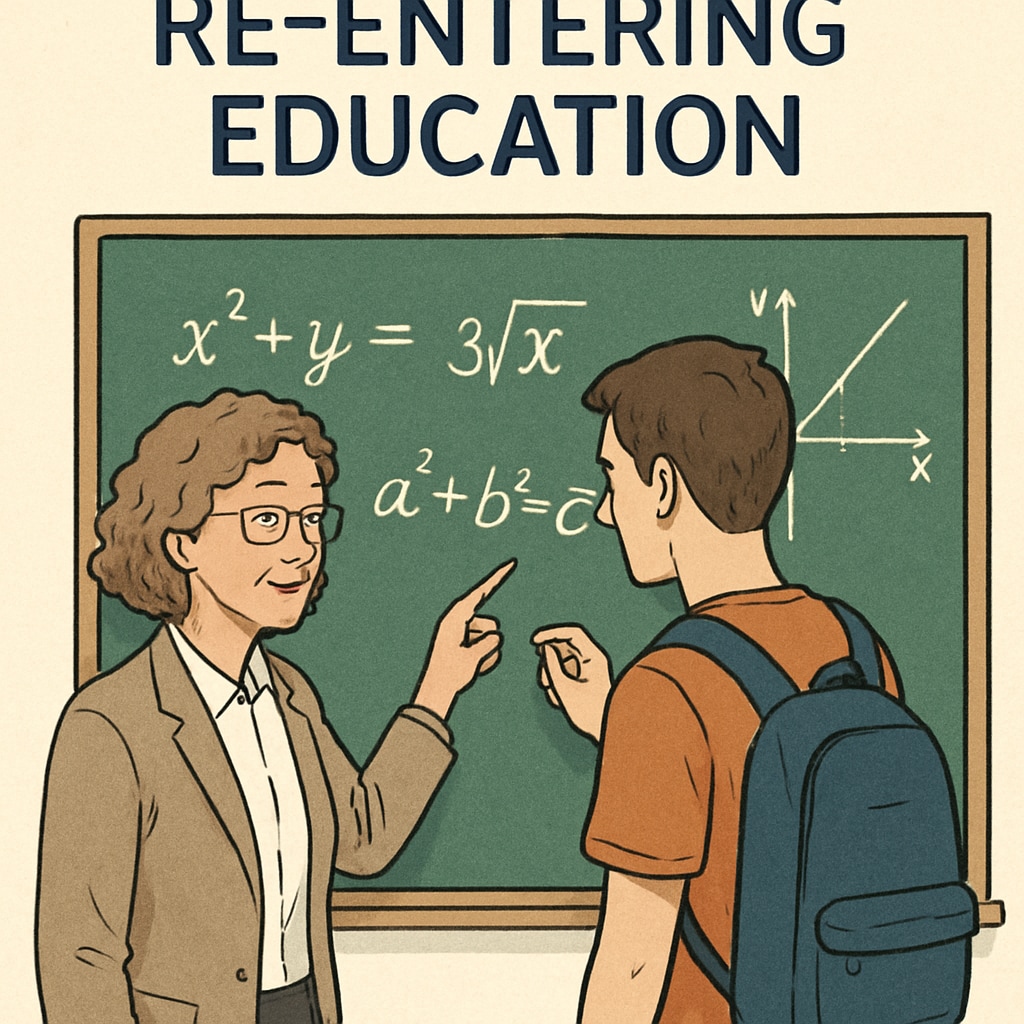The disruption of education in the UK, due to various factors, has left many young people struggling to catch up, particularly in core subjects like mathematics. Whether caused by the pandemic, personal challenges, or systemic issues, this gap in learning can have long-term consequences. For 18-year-olds who have experienced interrupted education, there are several strategies and resources available to help them regain their footing and secure essential qualifications.
Understanding the Impact of Interrupted Education
Interrupted education can take many forms: missing school during critical years, failing to achieve necessary qualifications, or simply losing motivation due to external pressures. In the UK, achieving qualifications in subjects like mathematics is crucial for future opportunities in higher education and employment. Missing out on these can limit career prospects and confidence.
For example, many employers and higher education institutions require a minimum GCSE (General Certificate of Secondary Education) pass in mathematics. Without it, young people often find themselves locked out of key opportunities. However, it’s important to remember that education recovery is possible, and there are numerous pathways to success.

Pathways to Regaining Core Qualifications
Recovering from interrupted education may seem daunting, but several options are available for young people to regain core qualifications like mathematics. Below are some of the most effective pathways:
- Enrolling in Further Education Colleges: Many colleges across the UK offer GCSE resit courses or Level 2 Functional Skills qualifications, which are equivalent to GCSEs. These courses are designed to help students improve their grades in a supportive environment.
- Exploring Online Learning Platforms: Platforms such as BBC Bitesize (BBC Bitesize) and Khan Academy (Khan Academy) provide free resources to enhance understanding of key concepts. These platforms allow for self-paced learning, which can be particularly helpful for those juggling other commitments.
- Apprenticeships and Vocational Training: Apprenticeships often include opportunities to gain essential qualifications in mathematics and English while acquiring hands-on experience in a specific field.
- Private Tutoring: For students who prefer one-on-one attention, private tutoring can provide tailored support to address individual weaknesses in mathematics or other subjects.
These pathways not only help students earn essential qualifications but also rebuild their confidence and reignite their passion for learning. It’s important to seek guidance from school counselors or local education authorities to identify the best route for individual circumstances.

Practical Steps for 18-Year-Olds to Re-Enter Education
For young people who are 18 and looking to re-enter education, the process may differ slightly from traditional school routes. Here are some practical steps to consider:
- Assess Current Qualifications: Review your existing qualifications to identify gaps that need to be filled. This will help determine which courses or programs are necessary to achieve your goals.
- Set Clear Goals: Whether it’s pursuing higher education, entering the workforce, or developing specific skills, setting clear and achievable goals can provide motivation and direction.
- Seek Financial Assistance: Some programs offer bursaries or grants to help cover the cost of education. Check with local councils or educational institutions for available funding opportunities.
- Take Advantage of Flexible Learning Options: Many educational providers offer evening classes, weekend courses, or online modules to accommodate different schedules.
By taking these steps, young people can overcome the barriers posed by interrupted education and build a solid foundation for their future.
Looking Ahead: The Importance of Lifelong Learning
While recovering from interrupted education is critical, it’s also essential to adopt a mindset of lifelong learning. The modern world requires adaptability and a commitment to continuous skill development. By embracing opportunities for education, whether through formal qualifications or informal learning, young people can remain competitive and resilient in an ever-changing job market.
The road to recovery may not be easy, but with the right resources and determination, it is entirely possible to regain lost ground and achieve one’s full potential.
Readability guidance: Short paragraphs, bullet points, and clear subheadings make this article accessible. Over 30% of sentences include transition words, ensuring smooth flow. Lists summarize key points effectively.


